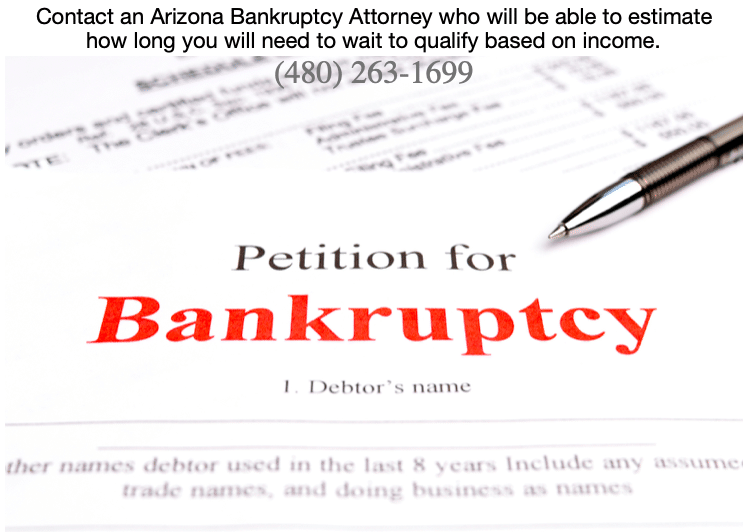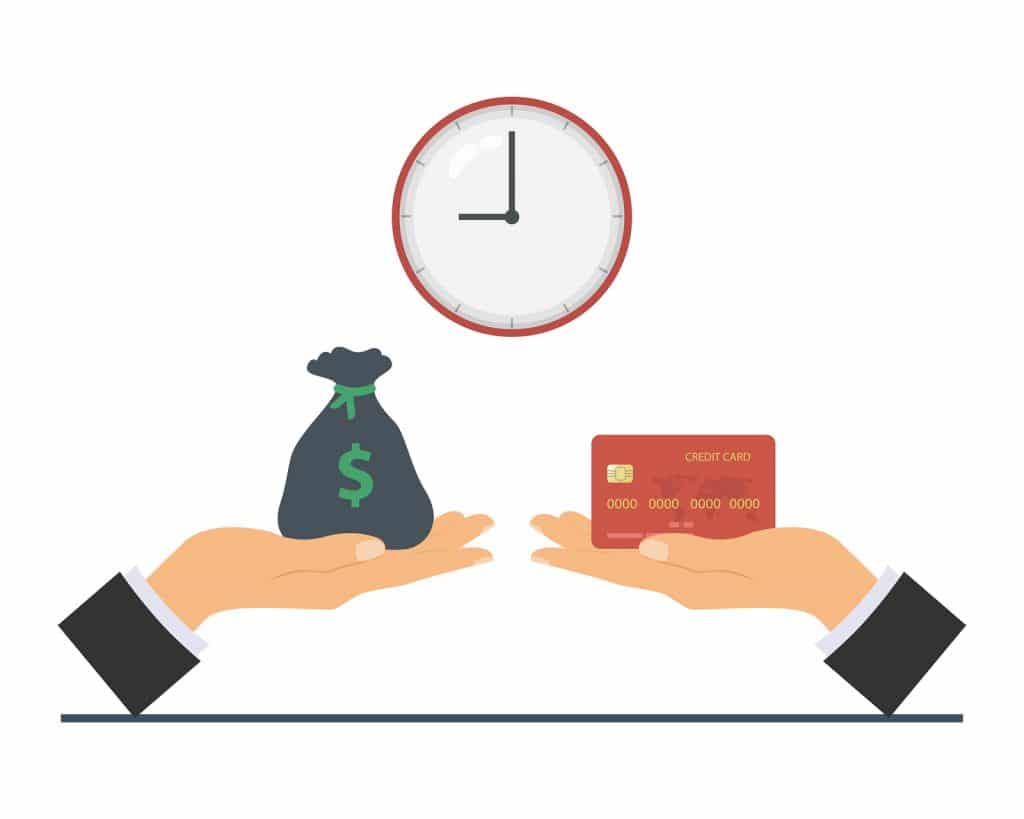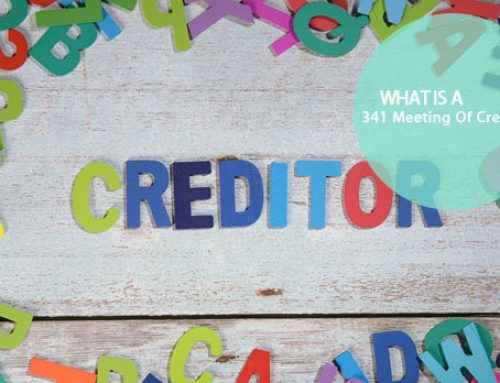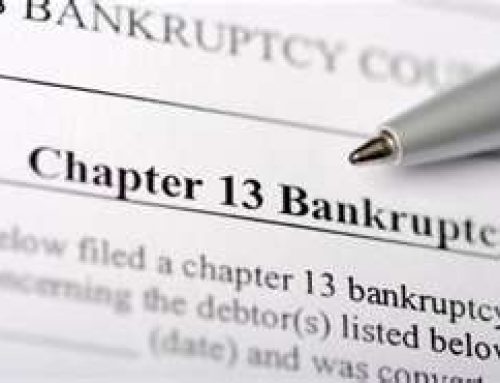Waiting to File Chapter 7 Bankruptcy
 When debts become too much to manage, bankruptcy is available as a way for Americans to discharge debts they won’t reasonably be able to pay. The coronavirus pandemic has wreaked havoc on the economy for months, and more and more people have to start considering bankruptcy to address their financial strains. There are many reasons you may need to wait to file bankruptcy. No matter the reason you need to delay your Chapter 7 filing, there are steps you can take while you wait to ensure your case is successful.
When debts become too much to manage, bankruptcy is available as a way for Americans to discharge debts they won’t reasonably be able to pay. The coronavirus pandemic has wreaked havoc on the economy for months, and more and more people have to start considering bankruptcy to address their financial strains. There are many reasons you may need to wait to file bankruptcy. No matter the reason you need to delay your Chapter 7 filing, there are steps you can take while you wait to ensure your case is successful.
Income Qualification Purposes
To qualify for a Chapter 7 bankruptcy, you must either: (a) make less than the median income for your family size in your state, or (b) pass the Means Test. The Means Test is a way to calculate how much disposable monthly income you have, and if it is low enough to qualify for Chapter 7 bankruptcy. Your income will be calculated using an average over the last six months. If you are one of the millions of Americans who is unemployed due to the coronavirus pandemic, your average income may be slowly decreasing. You should contact a bankruptcy attorney who will be able to estimate how long you will need to wait to qualify based on income.
Waiting Periods When Filing Bankruptcy in Arizona
 Bankruptcy has drawbacks, but it comes with immense benefits. If filers could declare bankruptcy every year or two, some would inevitably abuse the system. That is why there are waiting periods between filing each chapter of bankruptcy. Additionally, if you have previously filed Chapter 7 bankruptcy, you will have to wait 7 years to file another Chapter 7 bankruptcy and 4 years to file a Chapter 13 bankruptcy. If you have previously filed Chapter 13 bankruptcy, you will have to wait 2 years to file another Chapter 13 bankruptcy and 6 years to file a Chapter 7 bankruptcy.
Bankruptcy has drawbacks, but it comes with immense benefits. If filers could declare bankruptcy every year or two, some would inevitably abuse the system. That is why there are waiting periods between filing each chapter of bankruptcy. Additionally, if you have previously filed Chapter 7 bankruptcy, you will have to wait 7 years to file another Chapter 7 bankruptcy and 4 years to file a Chapter 13 bankruptcy. If you have previously filed Chapter 13 bankruptcy, you will have to wait 2 years to file another Chapter 13 bankruptcy and 6 years to file a Chapter 7 bankruptcy.
Credit Cards and Assets
While preparing to file bankruptcy, you may have the idea to transfer assets to a friend or relative to circumvent Chapter 7 asset exemption limits. Assets that exceed these limits will be seized by the bankruptcy trustee, sold at auction, and the proceeds will be paid to your creditors. However, the trustee will examine your financial documents to make sure you haven’t tried to do just that. The trustee may “claw back” the asset from the recipient, or your case may be dismissed. Even worse, you may be prosecuted for fraud, which can lead to fines and jail time.
It may also be tempting to max out your credit cards while you wait to file bankruptcy- your credit card bills will be discharged anyway, right? Purchases of luxury items made with credit cards 90 days or less before your petition is filed won’t be discharged. You also can’t take out a cash advance on a credit card 70 days or less before your bankruptcy. You should consult your bankruptcy attorney if you are unsure whether your purchases will be considered luxury purchases.
Once your petition is filed, your Chapter 7 bankruptcy will take approximately 4-6 months to be discharged. During that time, you won’t be able to use your credit cards or open new ones. If you are surviving off of credit cards, perhaps due to the pandemic, you may want to wait to file. You won’t be able to purchase essentials with your credit cards after filing, and you won’t be able to debts incurred after the date of filing until 7 years have passed.
Document Preparation
Your attorney will need a wide array of documents pertaining to your financial situation to be able to draft your petition. Typical necessary documents include bank statements, deeds and registrations, divorce and child support documents, paystubs, tax returns, and retirement and investment account statements. Therefore, you should start collecting these documents now instead of scrambling when you’re ready to file.
More likely than not, your attorney will have some sort of packet or form for you to fill out. It will help your attorney fill out basic parts of the petition and to determine which documents are necessary for your petition. It can take a while to complete this paperwork carefully and accurately, so you should get started on it now.
Both Chapter 7 bankruptcy and Chapter 13 bankruptcy require that you take a credit counseling course before your petition is filed. This course can be completed online, and could take anywhere from 45-90 minutes. This is another step you can complete before you’re ready to file. Keep in mind that course certificates are valid for 180 days, so you shouldn’t take the course if you aren’t going to file in at least 6 months.
Contact our Arizona Chapter 7 Bankruptcy Attorneys
There are many other considerations to keep in mind if you aren’t quite ready to file Chapter 7 Bankruptcy. Our Arizona Debt relief office offers free consultations so you can determine what those exact considerations are for your situation. Take the first step towards freeing yourself of debt and call today! (480) 833-8000.


